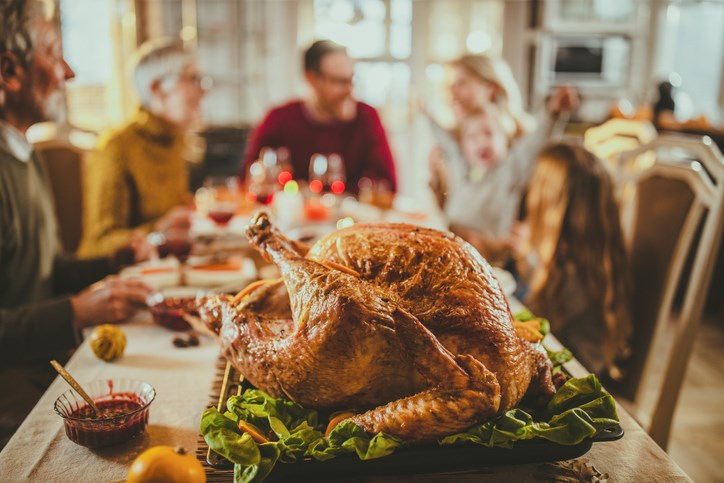As Canadians approach the Thanksgiving long weekend — yet another holiday overshadowed by the COVID-19 pandemic — many have been faced with tough decisions over how to gather with friends and family.
In the Maritimes, New Brunswick’s government has essentially cancelled holiday gatherings. On Friday, “circuit breaker” restrictions will come into effect limiting indoor gatherings to a single household after rising COVID-19 cases put a strain on the province’s health-care system.
But in B.C., public health recommendations are more nuanced, with varying transmission and vaccination rates leading to a mixed bag of risk.
Curtailing celebrations largely depends on where you live and if you are fully vaccinated. There are currently no public health orders restricting people from gathering at home in Island Health and Vancouver Coastal Health, which includes much of Metro Vancouver.
For the rest of British Columbians, here’s what you need to know about coming together for another pandemic Thanksgiving.
FRASER HEALTH
As the biggest health authority in the province, Fraser Health has accounted for the most COVID-19 cases throughout the pandemic.
Currently, however, there are only restrictions in place for the eastern reaches of the authority. There are no restrictions on personal gatherings if everyone 12 and over are fully vaccinated.
However, for unvaccinated or not fully vaccinated people, indoor personal gatherings are limited to your household and either five more guests, or one other household. Outdoor gatherings for the unvaccinated or not fully vaccinated are limited to your household and 10 other visitors.
The affected communities include: Abbotsford, Agassiz, Chillwack, Harrison Hot Springs, Hope and Mission.
INTERIOR HEALTH
B.C.’s Interior has gathering restrictions for every community in the health authority.
All residents of Interior Health are limited to one household plus five visitors or one other household. That goes for vacation rentals as well.
Outdoor personal gatherings, like a backyard barbecue, should have no more than 50 people attending.
NORTHERN HEALTH
Like the Interior, Northern Health residents looking to come together for Thanksgiving are required to limit gatherings to their household, plus five visitors or one other household. Outdoor personal gatherings are also limited to 50 people.
IMMUNOCOMPROMISED FACE TOUGH CHOICE
Attending a Thanksgiving gathering is a tougher choice for immunocompromised people, whose bodies often don’t provoke as strong an immune reaction even after being fully vaccinated.
Chritiane Coopman, a 73-year-old blood cancer patient in Chilliwack, and her husband who suffers from melanoma, both received booster doses of the COVID-19 vaccine two weeks ago. But their vulnerable health conditions still leave them wary of holiday get-togethers.
"For blood cancer patients, we don't generate (much) protection after two doses, and now that I have a third dose, it's possible I have 90 per cent protection, but it's possible I have six per cent," said Coopman, who was diagnosed with chronic lymphocytic leukemia eight years ago.
"If I get COVID, it would take one week and I'd be dead. Why would I risk that?"
Dr. Deepali Kumar, a transplant infectious disease physician at University Health Network, said reluctance around hosting or attending holiday events is commonplace among her immunocompromised patients.
While Kumar noted it can be disappointing for immunocompromised individuals to feel held back as others move on to a more normal life, she said it's possible to have safe Thanksgiving gatherings with some stipulations.
She suggested keeping the groups small and limited to only fully vaccinated guests. While kids under 12 are not yet eligible for vaccination, she said they can attend safely if parents stay vigilant about any COVID-19 cases in their schools leading up to the event.
"The best way to make sure they're protected is to get everybody vaccinated [to] reduce transmission of COVID in the community as much as we can,” she said.
With files from the Canadian Press



